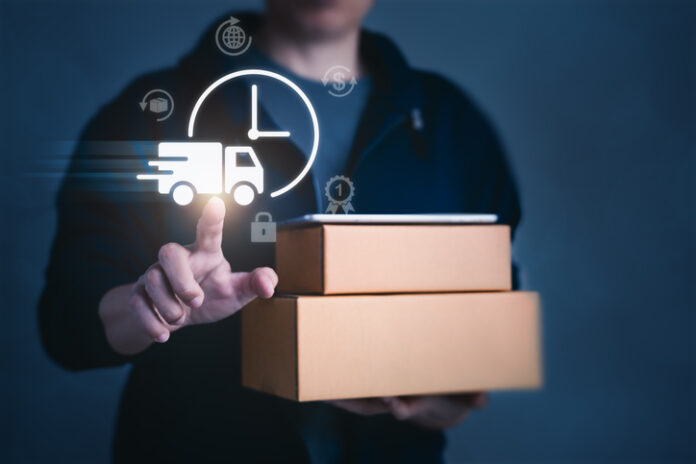In today’s fast-paced global economy, efficient and reliable logistics services are more crucial than ever. As businesses expand their reach and consumers demand faster, more flexible delivery options, the logistics industry must constantly evolve to meet these challenges. One company at the forefront of this evolution is divinetrans.com, offering a range of innovative services designed to streamline and optimize the delivery process. In this article, we’ll explore some of the latest trends and developments in logistics, and how they’re helping businesses stay ahead of the curve.
Advanced Tracking and Monitoring
One of the most significant advancements in modern logistics is the use of advanced tracking and monitoring technologies. These tools allow businesses to keep a close eye on their shipments at every stage of the delivery process, from the moment they leave the warehouse to the moment they arrive at their final destination.
GPS tracking, in particular, has revolutionized the way logistics companies operate. By equipping delivery vehicles with GPS devices, dispatchers can monitor their location in real-time, optimizing routes and ensuring that shipments arrive on time. This not only improves efficiency but also provides greater transparency and peace of mind for customers.
In addition to GPS, many logistics companies are now using sensors and other IoT (Internet of Things) devices to monitor the condition of their shipments. These devices can track factors like temperature, humidity, and shock, alerting dispatchers if any issues arise during transit. This is especially important for sensitive or perishable goods, such as food or pharmaceuticals, which require strict environmental controls.
Warehousing and Distribution
Efficient warehousing and distribution are essential components of any successful logistics operation. Today’s warehouses are becoming increasingly automated, with robots and other advanced technologies helping to streamline processes and reduce costs.
One trend in warehouse automation is the use of autonomous mobile robots (AMRs). These robots can navigate the warehouse floor independently, picking and transporting goods as needed. They can also work alongside human workers, reducing the risk of injury and improving overall efficiency.
Another trend is the use of vertical storage systems, which maximize warehouse space by stacking goods on high shelves. These systems use automated retrieval machines to access goods quickly and easily, reducing the need for manual labor.
In addition to these technologies, many logistics companies are now offering value-added services such as kitting, assembly, and packaging. By handling these tasks in-house, they can provide a more comprehensive and efficient service to their customers.
Last-Mile Delivery
The last mile of delivery, from the distribution center to the customer’s doorstep, is often the most challenging and expensive part of the logistics process. However, new technologies and services are emerging to make last-mile delivery more efficient and cost-effective.
One trend is the use of crowdsourced delivery, where individuals use their own vehicles to deliver packages on behalf of logistics companies. This model, popularized by companies like Amazon Flex and Uber, allows for greater flexibility and faster delivery times, particularly in urban areas.
Another trend is the use of alternative delivery locations, such as parcel lockers or convenience stores. These locations provide a secure, convenient place for customers to pick up their packages, reducing the need for multiple delivery attempts and lowering costs for logistics companies.
Some logistics companies are also experimenting with drone delivery, particularly for short distances or in remote areas. While still in the early stages, drone delivery has the potential to revolutionize last-mile logistics, providing faster and more efficient service to customers.
Sustainability and Green Logistics
As concerns about climate change and environmental sustainability continue to grow, many logistics companies are taking steps to reduce their carbon footprint and adopt more eco-friendly practices.
One trend is the use of electric and hybrid delivery vehicles, which produce fewer emissions than traditional diesel trucks. Some companies are also experimenting with alternative fuels, such as hydrogen or compressed natural gas, to further reduce their environmental impact.
Another trend is the use of sustainable packaging materials, such as biodegradable or recycled plastics. By reducing waste and minimizing their use of virgin materials, logistics companies can help to conserve resources and reduce their overall environmental footprint.
Many logistics companies are also adopting more efficient routing and scheduling practices, using data analytics and machine learning to optimize their operations. By reducing empty miles and minimizing fuel consumption, they can not only lower costs but also reduce their carbon emissions.
Technology and Data Analytics
Perhaps the most significant trend in modern logistics is the use of advanced technology and data analytics to drive efficiency and optimize operations. By leveraging the power of big data and artificial intelligence, logistics companies can gain deeper insights into their supply chains and make more informed decisions.
One example is the use of predictive analytics to forecast demand and optimize inventory levels. By analyzing historical data and market trends, logistics companies can better anticipate customer needs and ensure that they have the right products in the right place at the right time.
Another example is the use of machine learning algorithms to optimize route planning and delivery schedules. By analyzing traffic patterns, weather conditions, and other variables, these algorithms can help logistics companies to minimize delivery times and reduce fuel consumption.
Finally, many logistics companies are now using blockchain technology to improve transparency and security in their supply chains. By creating a tamper-proof, decentralized ledger of all transactions, blockchain can help to prevent fraud, reduce errors, and improve overall efficiency.
Conclusion
As the logistics industry continues to evolve and innovate, businesses that partner with forward-thinking providers like divinetrans.com will be well-positioned to stay ahead of the curve. By leveraging advanced technologies, sustainable practices, and data-driven insights, these companies can provide faster, more efficient, and more reliable delivery services to their customers. With new horizons in logistics constantly emerging, the future of delivery looks brighter than ever.




































